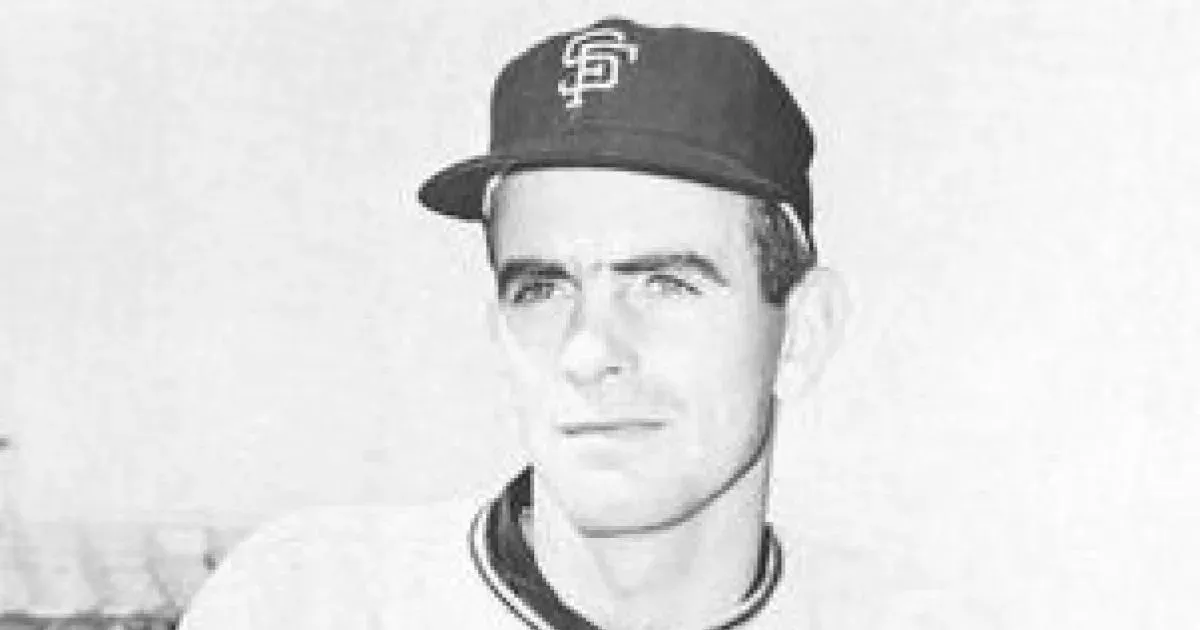Gaylord Perry was a prominent right-handed pitcher in Major League Baseball, playing from 1962 to 1983. Known for his durability and success, he achieved the unique distinction of winning the Cy Young Award in both the American and National Leagues. In 1972, he earned the AL Cy Young Award with 24 wins and a 1.92 ERA while pitching for the Cleveland Indians. He later secured the NL Cy Young Award in 1978 with the San Diego Padres, leading the league with 21 wins. This achievement also made him the oldest Cy Young Award recipient at the time, a record that stood for 26 years. Alongside his brother, Jim Perry, also a 200-game winner, they hold the unique record of being the only brothers to have both won Cy Young Awards.
September 15, 1938: Birth of Gaylord Perry
Gaylord Jackson Perry was born on September 15, 1938.
1955: State Championship Win
Gaylord Perry's high school team won the North Carolina Class A state tournament in 1955.
June 3, 1958: Signed with San Francisco Giants
Gaylord Perry signed with the San Francisco Giants on June 3, 1958.
1959: Promotion to Double-A
Gaylord Perry was promoted to Double-A in 1959.
1960: Played for Rio Grande Valley Giants
Gaylord Perry played for the Rio Grande Valley Giants in 1960.
1961: Promotion to Triple-A
Gaylord Perry was promoted to Triple-A in 1961.
April 14, 1962: Major League Debut with Giants
Gaylord Perry made his Major League debut with the San Francisco Giants on April 14, 1962.
1962: Brief Call-Up
Gaylord Perry had a brief call-up to the majors in 1962.
1962: Major League Debut
Gaylord Perry made his major league debut in 1962.
1963: Relief Pitcher Role
Gaylord Perry worked mostly as a relief pitcher in 1963.
1963: Early Wynn's 300th Win
In 1963, Early Wynn achieved his 300th career win.
1963: Manager's Moon Landing Joke
In 1963, Perry's manager, Alvin Dark, joked that there would be a man on the moon before Perry would hit a home run.
1964: Learned the Spitball
Gaylord Perry claimed to have learned the spitball in 1964.
1964: Joined Starting Rotation
Gaylord Perry joined the starting rotation in 1964.
1965: Two Full Seasons as Starter
By 1965, Gaylord Perry had completed two full seasons as a starting pitcher.
1966: Breakout Season
Gaylord Perry had a breakout season in 1966.
1967: Team Ace
Gaylord Perry became the team's ace in 1967.
September 1968: No-Hitter
Gaylord Perry pitched a no-hitter in September 1968.
1968: Near-Career-Best ERA and a No-Hitter
In 1968, Gaylord Perry achieved a near-career-best 2.45 ERA in 39 games, contributing to the Giants' second-place finish. On September 17, two days after his 30th birthday, he pitched a 1-0 no-hitter against the Cardinals and Bob Gibson, with the only run being a home run by Ron Hunt. The following day, the Cardinals' Ray Washburn no-hit the Giants, making it the first instance of back-to-back no-hitters in the same series in MLB history.
July 20, 1969: First Career Home Run
On July 20, 1969, just an hour after the Apollo 11 moon landing, Gaylord Perry hit his first career home run.
1969: League Leader in Innings Pitched
Gaylord Perry led the league in innings pitched in 1969, but the Giants finished second for the fifth straight season.
1970: League Leader in Wins and Innings Pitched
In 1970, Perry became the Giants' ace and led the league in both wins (23) and innings pitched (328.67), helping the Giants finish above .500 but still in third place.
November 29, 1971: Traded to the Cleveland Indians
On November 29, 1971, the Giants traded Gaylord Perry and Frank Duffy to the Cleveland Indians for Sam McDowell.
1971: Division Title and Postseason Appearance
In 1971, the Giants won their division, with Perry contributing a 16-12 record and a 2.76 ERA. This marked Perry's only postseason appearance, where he won Game 1 but lost the decisive Game 4 of the NLCS against the Pirates.
1972: First Cy Young Award
In 1972, Gaylord Perry won his first Cy Young Award in the American League.
1973: Spitball Controversy and Public Criticism
During the 1973 season, Gaylord Perry faced widespread suspicion of throwing a spitball. Bobby Murcer criticized baseball officials for not enforcing the rule against it, resulting in a fine, and Billy Martin's instruction to his pitchers to throw spitballs led to his suspension. Perry, however, publicly maintained that his pitch was a "hard slider."
1973: Decision to Co-Author Autobiography
Following the 1973 season, Gaylord Perry agreed to co-author an autobiography with Bob Sudyk, despite resistance from the Indians' general manager.
June 1974: AL Player of the Month and All-Star Game Start
In June 1974, Gaylord Perry was named AL Player of the Month after winning six complete games. He also started the All-Star Game in July, which the AL lost 7-2.
1974: Feud with Frank Robinson and Acquisition of Brother Jim
During the 1974 season, Gaylord Perry feuded with newly acquired player-manager Frank Robinson over salary and training regimens. The Indians also acquired Perry's brother, Jim, in a trade.
1974: Teammate with Brother Jim
Gaylord Perry played alongside his brother, Jim Perry, in Cleveland from 1974 to 1975.
1974: Autobiography Published
Gaylord Perry's autobiography, "Me and the Spitter," was published in 1974.
1974: Release of "Me and the Spitter"
Gaylord Perry's autobiography, "Me and the Spitter," was released in 1974, revealing his use of illegal pitches.
June 13, 1975: Traded to the Texas Rangers
On June 13, 1975, the Indians traded Gaylord Perry to the Texas Rangers for Jim Bibby, Jackie Brown, and Rick Waits.
1975: Teammate with Brother Jim
Gaylord Perry played alongside his brother, Jim Perry, in Cleveland from 1974 to 1975.
1975: Early Season Struggles and Trade of Brother Jim
In 1975, Perry began the season with a 6-9 record and a 3.55 ERA. His brother, Jim, was traded to Oakland after a poor start to the season and ultimately retired from the major leagues after the season.
1976: Solid Season with the Rangers
In 1976, Gaylord Perry posted a 15-14 record and a 3.24 ERA in 32 starts for the Rangers.
1977: Rangers Finish Second in AL West
The Rangers finished second in the AL West in 1977, with Perry contributing 15 wins against 12 losses.
1978: 3,000th Strikeout, Cy Young Award, and Trade to Padres
Before the 1978 season, Perry was traded to the San Diego Padres. In the final game of the season, he achieved his 3,000th strikeout and won the Cy Young Award, becoming the first pitcher to win the award in both leagues.
1978: 3,000 Strikeouts
Gaylord Perry reached 3,000 strikeouts in 1978.
1978: Second Cy Young Award
Gaylord Perry won his second Cy Young Award, this time in the National League, in 1978.
1979: Demands Trade Back to Texas
In 1979, after posting a 12-11 record, Perry quit the Padres, stating he would retire unless traded back to Texas.
February 15, 1980: Traded Back to the Rangers
On February 15, 1980, Gaylord Perry was traded back to the Texas Rangers.
August 13, 1980: Traded to the New York Yankees
On August 13, 1980, Perry was traded to the New York Yankees, despite previous complaints from Yankees players about his pitching style.
1980: Signs with Atlanta Braves
After the 1980 season, Perry signed a one-year contract with the Atlanta Braves.
1981: Released by the Braves
In 1981, the Braves released Perry, leaving him three wins short of 300.
March 5, 1982: Signed with Seattle Mariners
On March 5, 1982, Gaylord Perry signed a minor league contract with the Seattle Mariners after being released by the Braves and not finding interest from any other clubs during the offseason. He also acquired the nickname "Ancient Mariner" while with the Mariners.
May 6, 1982: 300th Career Win
Gaylord Perry won his 300th game on May 6, 1982, becoming the first pitcher to achieve this milestone since Early Wynn in 1963.
August 23, 1982: Ejection for Doctoring
On August 23, 1982, Gaylord Perry was ejected from a game for doctoring the baseball.
1982: Reggie Jackson Incident
An incident involving Gaylord Perry and Reggie Jackson occurred during a 1982 game where Jackson was ejected.
1982: 300 Win Club and Ejection
In 1982, Gaylord Perry joined the 300 win club and was ejected from a game for doctoring the ball.
August 1983: 3,509 Strikeouts and Pine Tar Game
In August 1983, Gaylord Perry became the third pitcher that year to surpass Walter Johnson's strikeout record of 3,509. He was also involved in the Pine Tar Game against the New York Yankees, where he hid George Brett's bat after Brett was initially called out for excessive pine tar.
September 23, 1983: Retirement
Gaylord Perry announced his retirement on September 23, 1983, finishing his MLB career with 314 wins, a 3.11 ERA, and 3,534 strikeouts.
1983: Season and Near No-Hitter with Royals
During the 1983 season, Gaylord Perry started with a 3-10 record for Seattle before being designated for assignment on June 26. He was then picked up by the Kansas City Royals ten days later. In August, he became the third pitcher in history to record 3,500 strikeouts. He also experimented with a submarine delivery for the first time in his career, taking a no-hitter into the eighth inning against the Baltimore Orioles on August 19.
1983: End of MLB Career
Gaylord Perry's career in Major League Baseball ended in 1983.
1986: Political Involvement
In 1986, Gaylord Perry campaigned for Jesse Helms and considered running for Congress.
1986: Bankruptcy and Coaching
In 1986, Gaylord Perry filed for bankruptcy after retiring to his farm. He briefly worked as a sales manager and later became the first baseball coach at Limestone College.
September 11, 1987: Wife's Death
Gaylord Perry's wife, Blanche, died in a car accident on September 11, 1987.
1988: Launched Limestone College Baseball Program
Gaylord Perry launched the baseball program at Limestone College in 1988, with his son, Jack, as a member of the inaugural team.
1990: Son Pitched No-Hitters
Jack Perry pitched two no-hitters within two weeks during the 1990 season at Limestone College.
1991: Retirement from Coaching
Gaylord Perry retired from his coaching position at Limestone College in 1991.
1991: Hall of Fame Induction
Gaylord Perry was elected to the National Baseball Hall of Fame in 1991, his third year of eligibility.
1998: Limestone College Hall of Fame Induction
In 1998, Gaylord Perry was inducted into the Limestone College Athletics Hall of Fame.
1998: Ranked Among 100 Greatest Players
In 1998, The Sporting News ranked Gaylord Perry 97th on their list of the 100 Greatest Baseball Players.
1999: All-Century Team Finalist
In 1999, Gaylord Perry was a finalist for the Major League Baseball All-Century Team.
June 18, 2005: Son's Death
Gaylord Perry's son, Jack, died of leukemia on June 18, 2005.
July 23, 2005: Number Retirement
On July 23, 2005, the San Francisco Giants retired Gaylord Perry's uniform number 36.
2007: CC Sabathia Wins Cy Young
CC Sabathia became Cleveland's second Cy Young Award winner in 2007.
2008: Cliff Lee becomes Cleveland's Next 20-Game Winner
Cliff Lee became the next Cleveland pitcher after Gaylord Perry to win 20 games in a season, achieving this in 2008.
March 9, 2009: Bay Area Sports Hall of Fame Induction
Gaylord Perry was inducted into the Bay Area Sports Hall of Fame on March 9, 2009.
April 9, 2011: Received 2010 World Series ring
On April 9, 2011, Gaylord Perry was honored at AT&T Park with a 2010 World Series ring along with other San Francisco Giants legends.
April 7, 2013: Received 2012 World Series ring
On April 7, 2013, Gaylord Perry was honored with a 2012 World Series ring, alongside Willie Mays and Juan Marichal.
April 18, 2015: Received 2014 World Series ring and Threw First Pitch
On April 18, 2015, Gaylord Perry received a 2014 World Series ring and threw the ceremonial first pitch at the Indians' Opening Day game.
August 13, 2016: Statue Unveiling
A bronze statue of Gaylord Perry was unveiled outside AT&T Park on August 13, 2016.
2017: Son Inducted into Hall of Fame
Jack Perry was posthumously inducted into the Limestone University Athletics Hall of Fame in 2017.
2021: Contracted COVID-19
Gaylord Perry contracted COVID-19 in 2021 and never fully recovered.
December 1, 2022: Death of Gaylord Perry
Gaylord Perry passed away on December 1, 2022.
Mentioned in this timeline
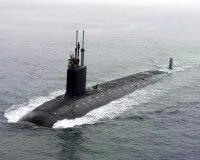
A submarine is a watercraft capable of independent operation underwater...

San Francisco is a major commercial financial and cultural hub...

News encompasses information about current events disseminated through various media...

Seattle is the most populous city in Washington state and...
North Carolina is a Southeastern U S state the th-largest...
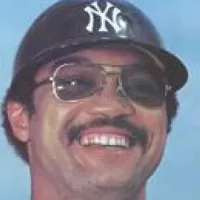
Reggie Jackson a former American professional baseball right fielder played...
Trending
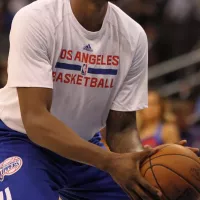
20 minutes ago DeAndre Jordan's Role Shifts: From Pelicans' Starter to Veteran Locker Room Presence
20 minutes ago Democrats Introduce War Powers Resolution to Restrain Trump's Actions Towards Iran.

1 day ago Bryce Dallas Howard Celebrates 45th Birthday: A Look at Her Career
1 hour ago ASU defeats Utah, court rejects Trump tariff refund slowdown attempt.
1 hour ago The Office stars reunited at the 2026 Actor Awards in Los Angeles.
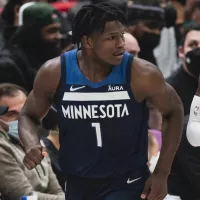
1 hour ago Anthony Edwards Shines as Timberwolves Defeat Grizzlies; Named NBA Player of Week
Popular

Hillary Diane Rodham Clinton is a prominent American politician lawyer...

Jesse Jackson is an American civil rights activist politician and...

Ken Paxton is an American politician and lawyer serving as...

Jim Carrey is a Canadian-American actor and comedian celebrated for...

Bill Clinton served as the nd U S President from...

XXXTentacion born Jahseh Dwayne Ricardo Onfroy was a controversial yet...
